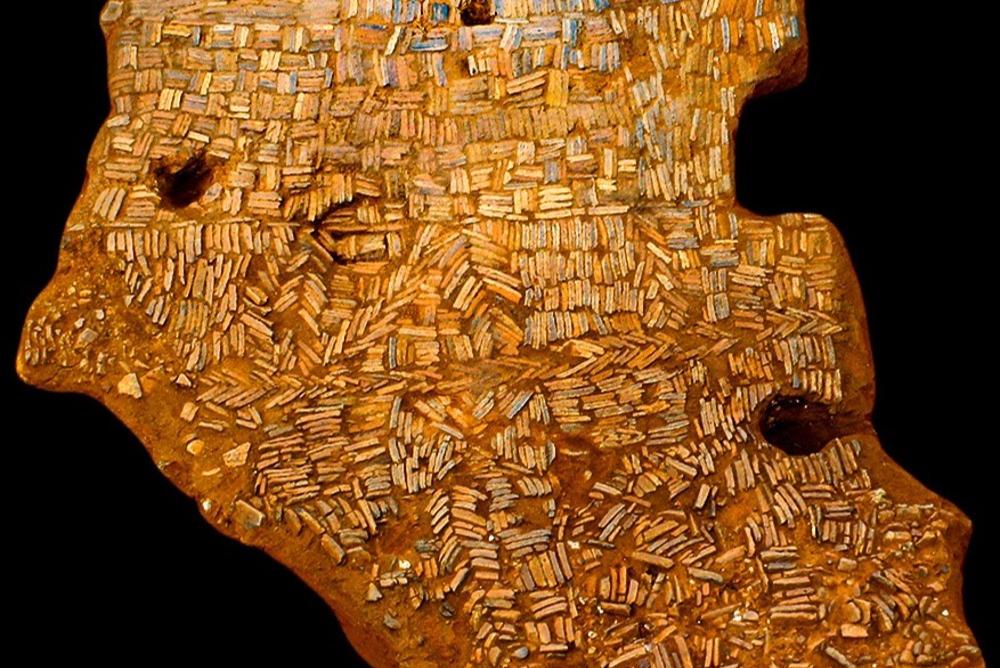W&M Featured Events
[PAST EVENT] Anthropology Ph.D. Dissertation Defense: "Landscapes of Power," Olanrewaju Lasisi
Access & Features
- Open to the public

Anthropology Ph.D. candidate Olanrewaju Lasisi will defend his dissertation "Landscapes of Power: A Historical Archaeology and Cultural Astronomy of Ijebu-Yoruba Palatial Urbanscapes, AD 1000-1900," on April 21st at 3 pm in Washington Hall 101.
The abstract of his paper reads:
"This dissertation uses “Power Ensemble” as a framework to contextualize the organization of space and its allegory of power among the Yorùbá, southwestern Nigeria, using the Ìjébú cultural landscape as a case study. Power ensemble shows that the Ìjébú palace is the microcosm of the power structure and relations that see the conglomeration of architectural, religious, cosmic, political, and economic powers, all in one place—the palace—a landscape of power. The power ensemble exposes new scholarly knowledge of the intersection of Architecture, Ritual, and Astronomy as interconnected root cultural practices that established the Yorùbá cultural landscapes. The thesis is that major rituals in the Ìjébú kingdom occur only on certain days of celestial significance and only in spaces within the palace purposefully constructed to host such rituals. The palatial architecture was also designed following principles of astronomical orientations and alignments. Thus, choreographic ritual movements, referred to here as the “architecture of ritual movements,” by default, pay attention to the astronomically aligned architecture during rituals. Since ritual is centered within the palace complex, the organization of the Ìjébú polity and the economic activities that linked its outlying towns and cities to the landscape of power becomes a function of the overall design of the Ìjébú astronomic and ritual-architectural connectedness. To this end, this dissertation employs power in two dimensions—power in space and power in time.
Power in space shows the manifestations of power through architecture, ritual, and astronomy. The allegory of power through architecture examines the 180km fortification surrounding the entire Ìjébú kingdom. This dissertation shows that in addition to this fortification, the Ìjébú kingdom had multiple fortification systems within the capital city. At the center of these multiple enclosures lie the most important space—the ancient Ìjébú palace complex—which displays power across cosmic, economic, spiritual, and political levels. The practice of ritual within the palace led to the decision to excavate certain areas. This series of excavations produced an ample number of royal paraphernalia. The excavation of potsherd pavements from the palace transforms our understanding of their functions. This dissertation shows that beyond the purview of pavements as part of pathways and floors, they also functioned as mnemonic devices. The orientation of the palace to the rising sun on the equinox and the ethnographic evidence for the practice of astronomy placed the palace as an ancient observatory that connects the elements of the skyscape with the quotidian life of the Ìjébú.
Power in time shows the changes and continuity of power in space over 1000 years. Using the indigenous hermeneutics of rituals and their associated dramas and expressions, the nature of “architecture, ritual, and astronomy” in the first half of the second millennium AD was brought to light. By the opening of the Atlantic trade, the Ìjébú architecture, particularly the fortifications, changed from defensive to serving economic functions. By the late 19th century, Ìjébú became the last Yorùbá kingdom to be conquered by the British force. Upon the expedition of Britain, the Ìjébú fortifications completely lost their function, and the ancient palace was deserted. Since architecture, ritual, and astronomy are interconnected root cultural practices, the Ìjébú socio-politico, and religio-economic dynamics were also distorted. The indigenous knowledge of astronomy held by the Ìjébú sages and indigenous calendrical systems disappeared. The landscape of power lost its fervor and power, except that the remnants of the culture are embedded in ritual movements and other indigenous epistemologies. This dissertation suggests that scholars of deep African history begin to see indigenous hermeneutics not only as ways of doing but as a way of knowing. This is precisely the approach employed in this dissertation research to interrogate and interpret the artifacts of the long-lost civilization."
